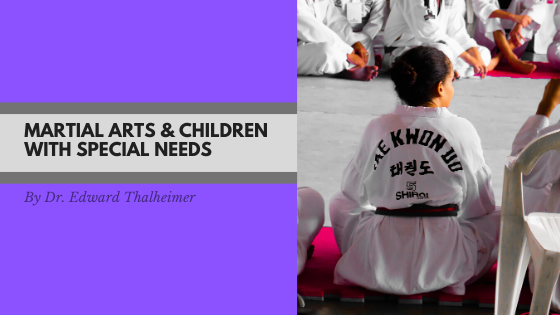Children diagnosed with special needs benefit from learning discipline and having a sense of structure in their lives. Martial arts programs provide both requirements. Participating in martial arts offers children the chance to express themselves in a healthy way while teaching them perseverance. Studies indicate that enrolling children with special needs in martial arts instruction can also help them achieve their personal goals in a shorter length of time.
How Martial Arts Helps
Studies indicate that children with special needs who participate in martial arts programs demonstrate improvements in communication skills and cognitive function. Children with ADHD and autism display reduced levels of hyperactivity and fewer temper tantrums. Their attention span lengthens, and they experience more effective sleep patterns.
By taking weekly martial arts classes, youngsters learn consistency through repetition. Complying with the requirements of the course, students gain respect for their instructor and themselves while learning self-discipline. Learning and replicating the moves taught in the classes requires concentration and focus. The physical actions enhance agility, balance, and coordination. In general, children with special needs enjoy the classes and grow in confidence as they progress from one level to the next.
Finding a Martial Arts Program
When visiting with potential martial arts instructors, parents must ensure that the teacher exhibits compassion, patience, and understanding. These traits are vital if a child is to emulate the characteristics of another. There are several other factors to consider, as well.
- Determine the reputation of the dojo and the instructor’s experience.
- Ensure that the program suits the needs of the youngster.
- There must be experienced adult instructors present at all times.
- The floors must feature adequate protective coverage.
- The instructors should have experience in working with special needs children.
- Smaller facilities and smaller classes have fewer distractions, which encourages focus and learning.
- The classes should offer the opportunity for rank advancement once skill levels are met.
- Ideally, classes should be offered a minimum of twice weekly.
- Before enrolling in a program, the instructor should offer private lessons so that the instructor and pupil may become better acquainted.
- The facility should offer flexible fee schedules in the event of personal issues.
- The facility should offer events that provide students with the chance to mingle with other students.
- The school should have the support of a national organization.

